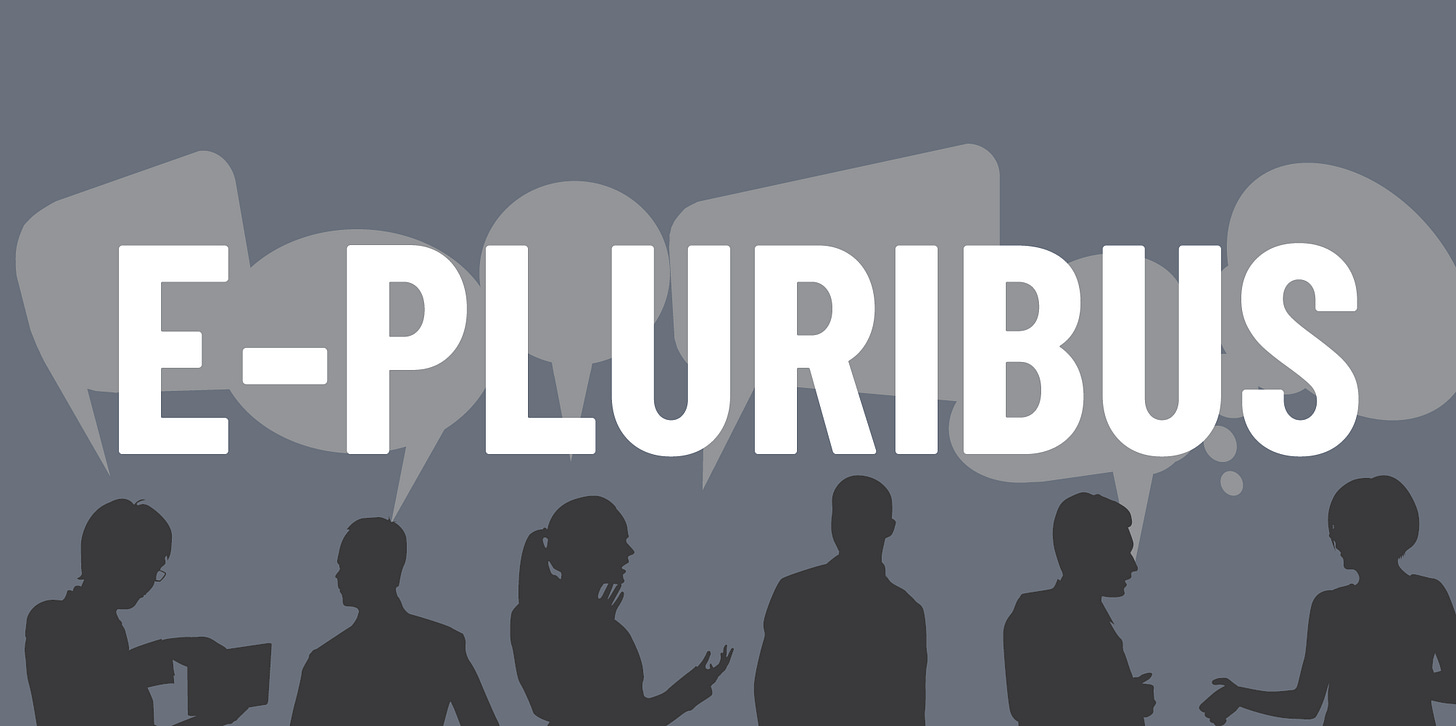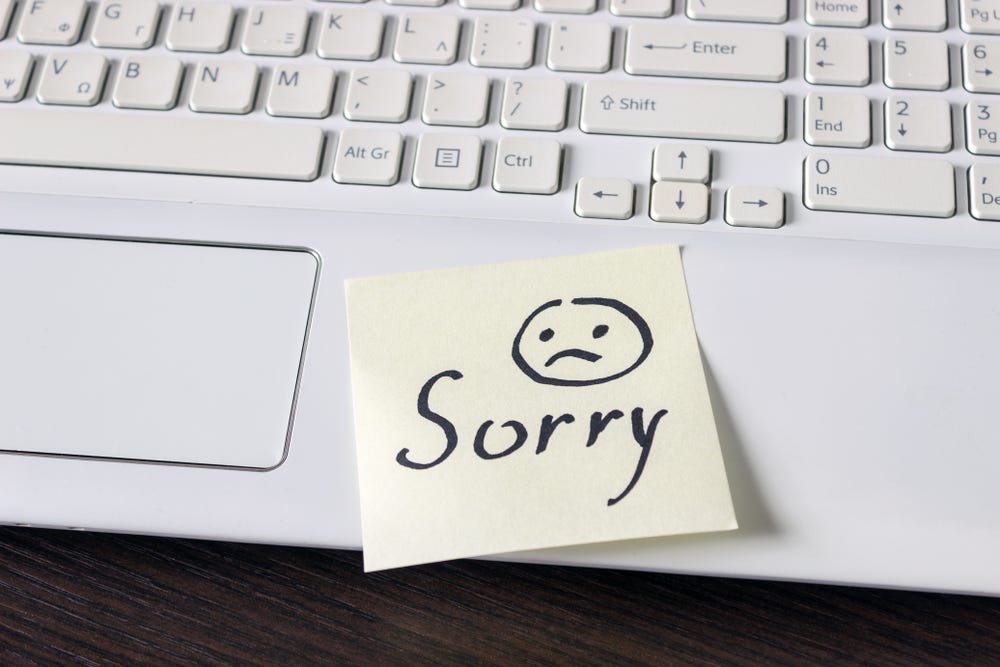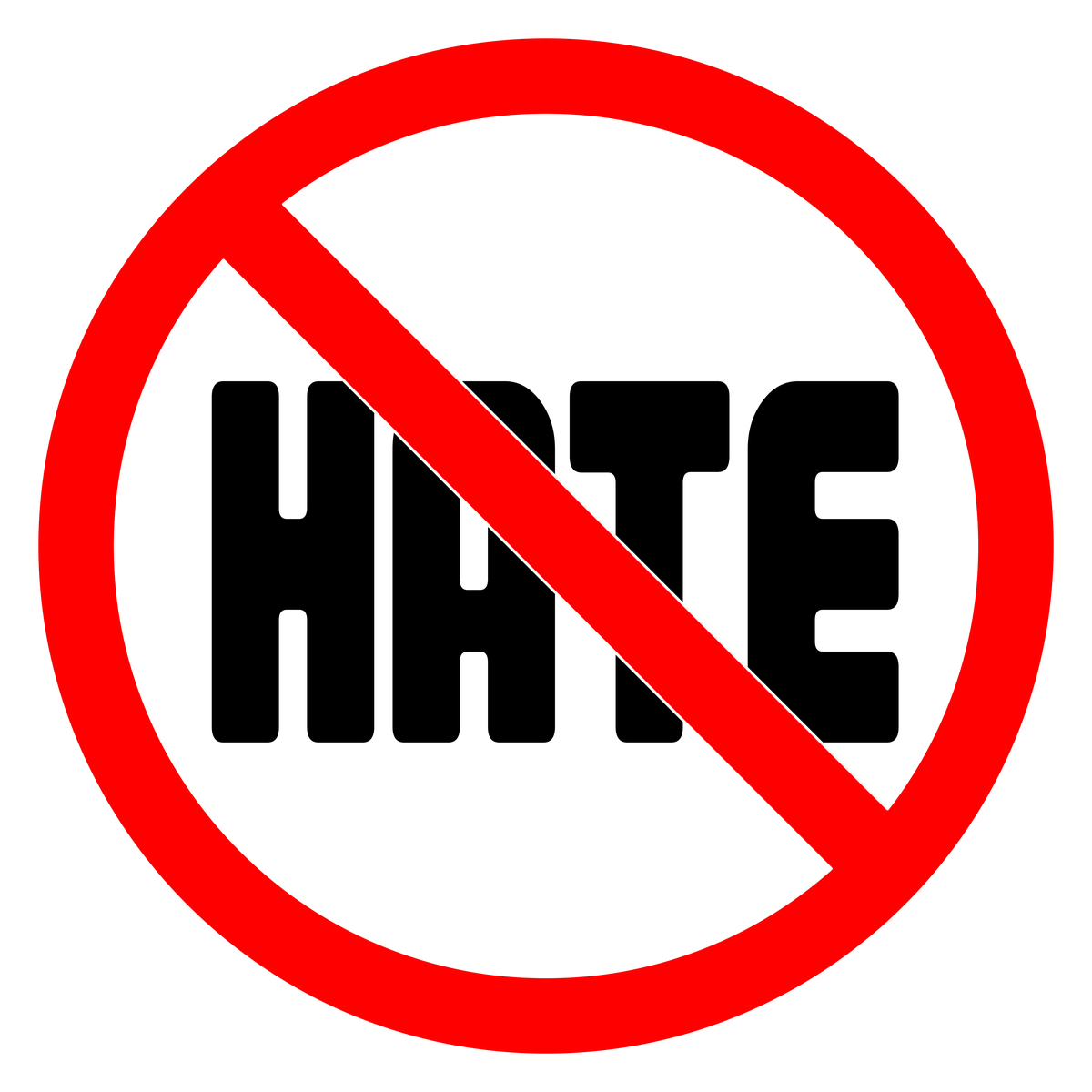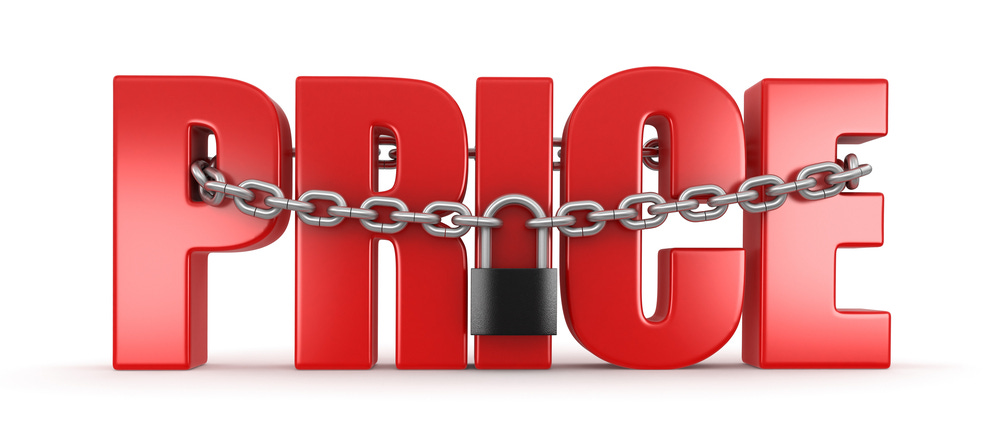E-Pluribus | March 1, 2022
Sorry seems to be the easiest word to say these days, but does it matter; does No Place For Hate live up to its billing; and do price controls have any place in a democracy?
A round up of the latest and best writing and musings on the rise of illiberalism in the public discourse:
Jessica Bennett: He’s Sorry, She’s Sorry, Everybody Is Sorry. Does It Matter?
In the 1980s, Peter Cetera sang that is was hard for him “to say I’m sorry,” but Jessica Bennett writes that in 2022, it’s all the rage. However, do people really mean it, and even if they do, does it make a difference? Bennett explores various aspects of this Age of Apology for The New York Times.
This isn’t the first age of apology. Nor is it the first in which public apologies have been deemed insincere.
And yet, something about this era of contrition feels different.
It’s not just the speed at which the apologies are incoming, though that’s part of it.
[ . . . ]
Perhaps it’s that public apologies, no matter how insincere, once seemed to serve a social function: They established our societal red lines, they showed us that even the powerful could be held responsible for their actions, and the act of apologizing itself, with all the discomfort and squirming involved, often seemed like real punishment. “It was an admission of defeat as much as an admission of guilt,” said the linguist Deborah Tannen.
[ . . . ]
Which isn’t to say that the apology serves no function. There is plenty of research to show that a sincere apology still retains great value in our culture — particularly when delivered to an actual person. In one study, of surgery patients who’d filed malpractice suits, 40 percent said that an apology from the doctor along with an explanation might have prevented them from suing in the first place.
It’s the public apologies, often delivered to an amorphous audience, that become more complex. Ms. Schumann’s own research, of #MeToo-related apologies, has found that even the highest-quality expressions of remorse — the nondefensive, the clearly contrite — left victims, and the public, dissatisfied. In a 2019 study, which applied hypothetical apologies to real-life scenarios in which a prominent figure said something controversial — in one experiment, Rand Paul’s comments about the Civil Rights Act, in another, Larry Summers’s comments about female scientists — researchers found that people were either unaffected by the apology or more likely to want to see the person punished.
And perhaps most applicable to the current wave of apologies, in which there is often debate about the scale of the offense, is a 2020 analysis by the legal scholar Cass Sunstein, in which he explored not whether the right thing to do for a public figure was apologize but whether it was the effective thing to do. He writes that when an offense is perceived as ambiguous — either it’s not clear whether a person has done something wrong or there is debate about the severity — an apology will not help.
Read it all.
John Sailer: No Place for Hate
At Minding the Campus, John Sailer takes a close look at the No Place for Hate designation that the Anti-Defamation League confers upon schools that successfully complete its program focused on anti-bullying and “creating inclusive learning environments.” But Sailer contends the details of the curriculum reveal it to be just another attempt to indoctrinate students with modern progressivism.
“No Place for Hate”—a designation the ADL grants schools after they implement a series of “anti-bullying” activities—has existed for over 20 years. The program has reportedly reached 1.4 million students, and over 1,600 schools currently hold the designation, which they take to be a badge of honor. The Austin Independent School District, for example, boasts that it “has maintained the designation as the largest No Place for Hate school district in the nation for six years.”
The ideological tenor of No Place for Hate isn’t hard to discern. In fact, the most recent No Place for Hate Coordinator Handbook & Resource Guide includes the ADL’s now-abandoned definition of racism. That gives a good summary of the program.
To become a No Place for Hate school, students and staff must sign an anti-bullying pledge and implement three activities “that enhance students’ understanding of diversity, bias, social justice and inclusion, and which also foster equity and harmony in your school community.” The coordinator handbook elaborates on what these activities should look like, placing a heavy emphasis on activism and the tenets of contemporary identity politics.
[ . . . ]
In another section, “Let’s Get it Right: Using Correct Pronouns and Names,” the handbook emphasizes that “misgendering” is harmful. It goes beyond the insistence that teachers should ritualize gender ideology, also suggesting that teachers hide their students’ social gender transition from parents: “You should also ask whether it’s okay or not to use their name and pronoun in communication home to parents/family members and in parent-teacher conferences. Keep in mind that some students may not disclose this information to some or all family members.”
The guide provides dozens of activities that schools can implement to gain their No Place for Hate designation. In the ADL’s activity library, exercises include “The Identity Iceberg and Me,” “Microaggressions In Our Lives,” and the “Pyramid of Hate.” Meanwhile, the guide suggests using the ADL’s Anti-Bias Curriculum, which includes lessons on “Microaggressions,” the “4 I’s of Oppression,” “Equality vs. Equity,” “Social Justice Planning,” and “10 Ways to Engage in Activism.”
Read the whole thing.
Carola Binder: Who Controls the Controllers?
An article on price controls might sound like a good insomnia cure, but Carola Binder at City Journal makes the case that the public should care about even tedious economic subjects as their implementation can have profound impacts on a democratic society. Binder reviews the US’s history with price controls and warns that when the government tries to micromanage the economy, bureaucrats gain power and freedom suffers.
Delegation to technocrats is sometimes justified in policy areas requiring substantial expertise, but not without strong checks and accountability mechanisms to maintain democratic legitimacy. Judicial review is one such check, but Congress knew that consistent enforcement of price controls across the country would be impossible if the OPA’s regulations and orders could be challenged in district courts. The Emergency Price Control Act of 1942 thus granted exclusive jurisdiction to a new Emergency Court of Appeals staffed with New Deal judges who almost always sided with the OPA’s administrator. Meanwhile, the OPA administrator could bring suit in federal and state courts to enforce even regulations under review by the Emergency Court. The OPA instituted 280,724 sanctions from 1942 to 1947, and won 94 percent of cases brought to judgment, collecting more than $73 million in fines and leading the American Bar Association to express concern over “kangaroo courts.”
Even with more appropriate checks in place, delegation of the price system to technocrats would still be unjustified. Government economists, no matter how well intentioned, simply cannot outperform the market mechanism when it comes to aggregating and transmitting highly dispersed information via prices. This is why black markets, rationing, and shortages were so pervasive under the reign of the OPA. Today our economy is larger and more complex than it was in the 1940s. Interfering with price signals would cause even greater havoc. Tucker notes that “many more officials would need to be hired” to administer price controls and adds that “if we think future crises might merit price controls, expanding governments’ abilities now to track prices throughout supply chains is a must.” But no number of government economists, even equipped with high-tech surveillance technology, can match market mechanisms when it comes to solving the knowledge problem.
Read it all here.
Around Twitter
Is Vladimir Putin being “canceled”? Jonah Goldberg is not buying it, and several others weigh in as well:
Google is blocking Russian government-related YouTube channels. Eli Lake believes ridicule is a better option:
And finally, Peter Boghossian on cutting one’s losses:








